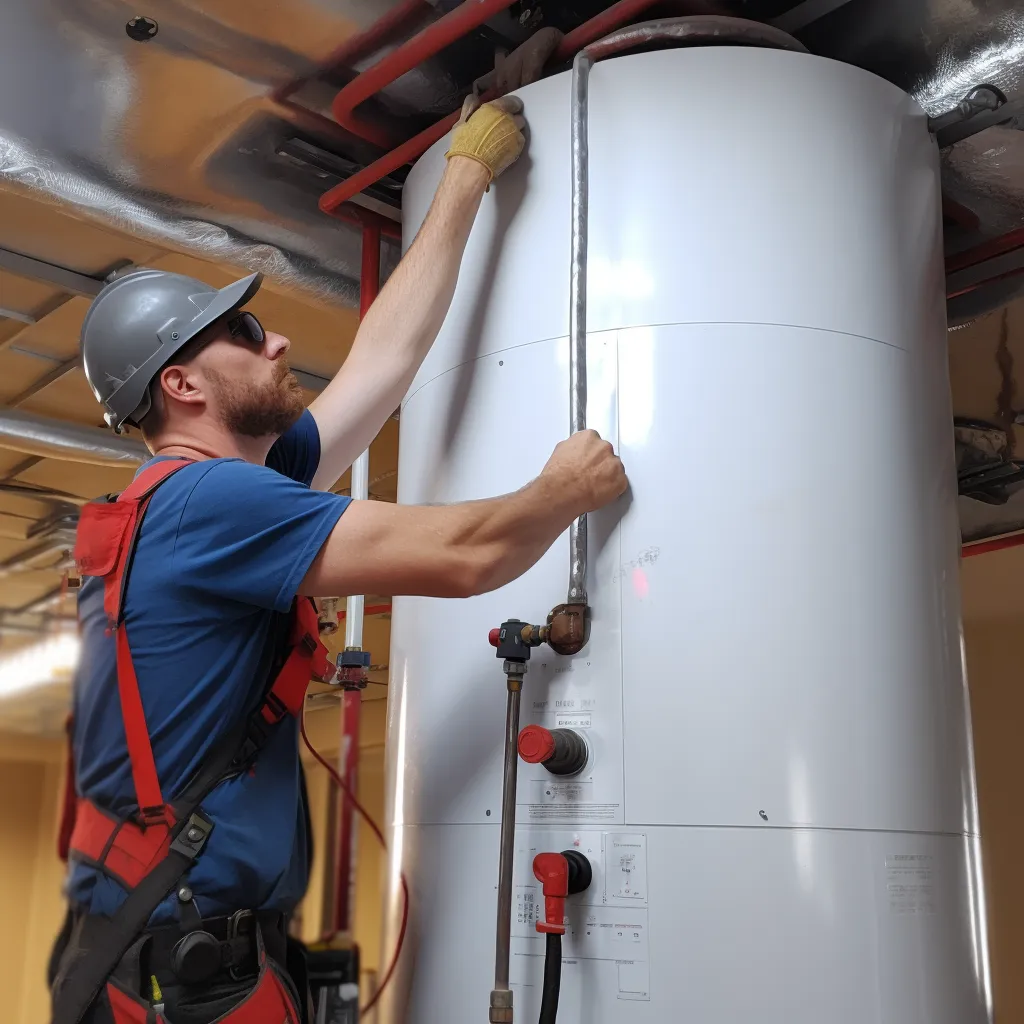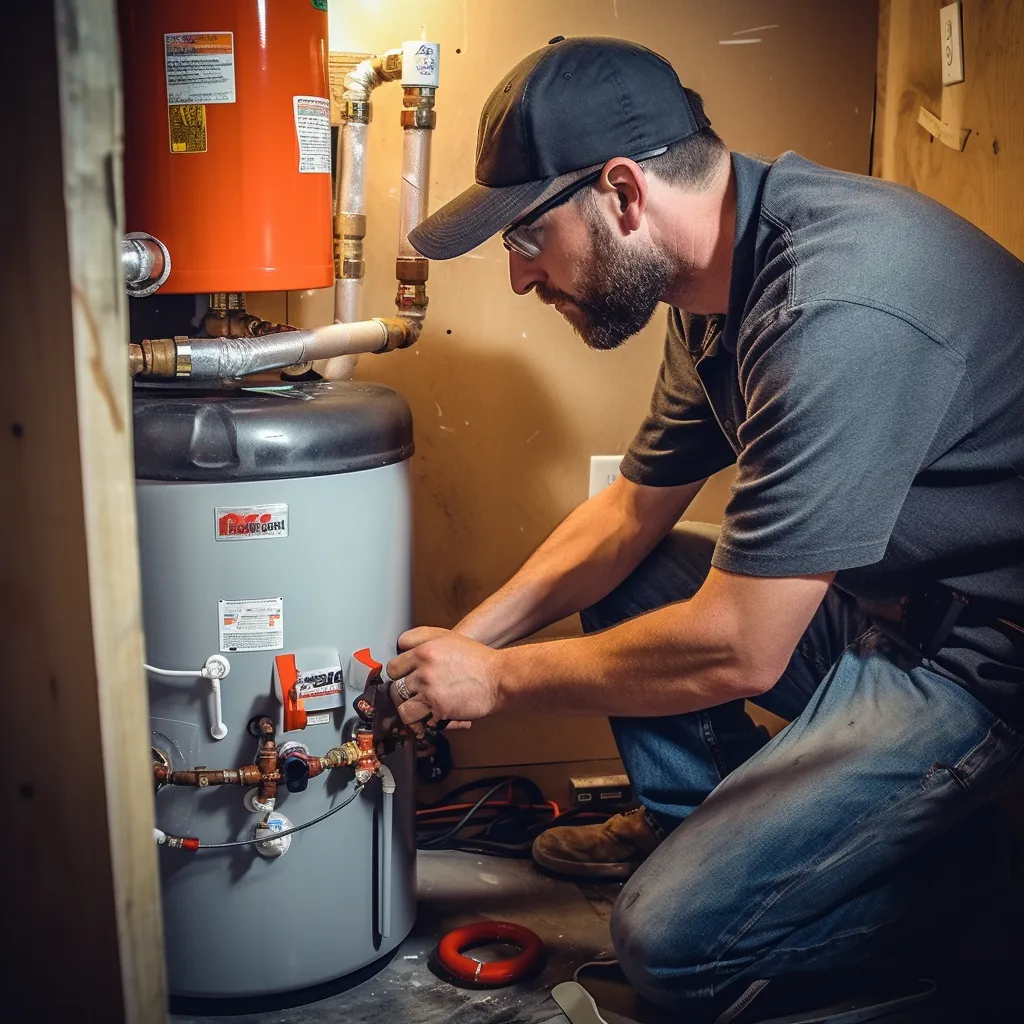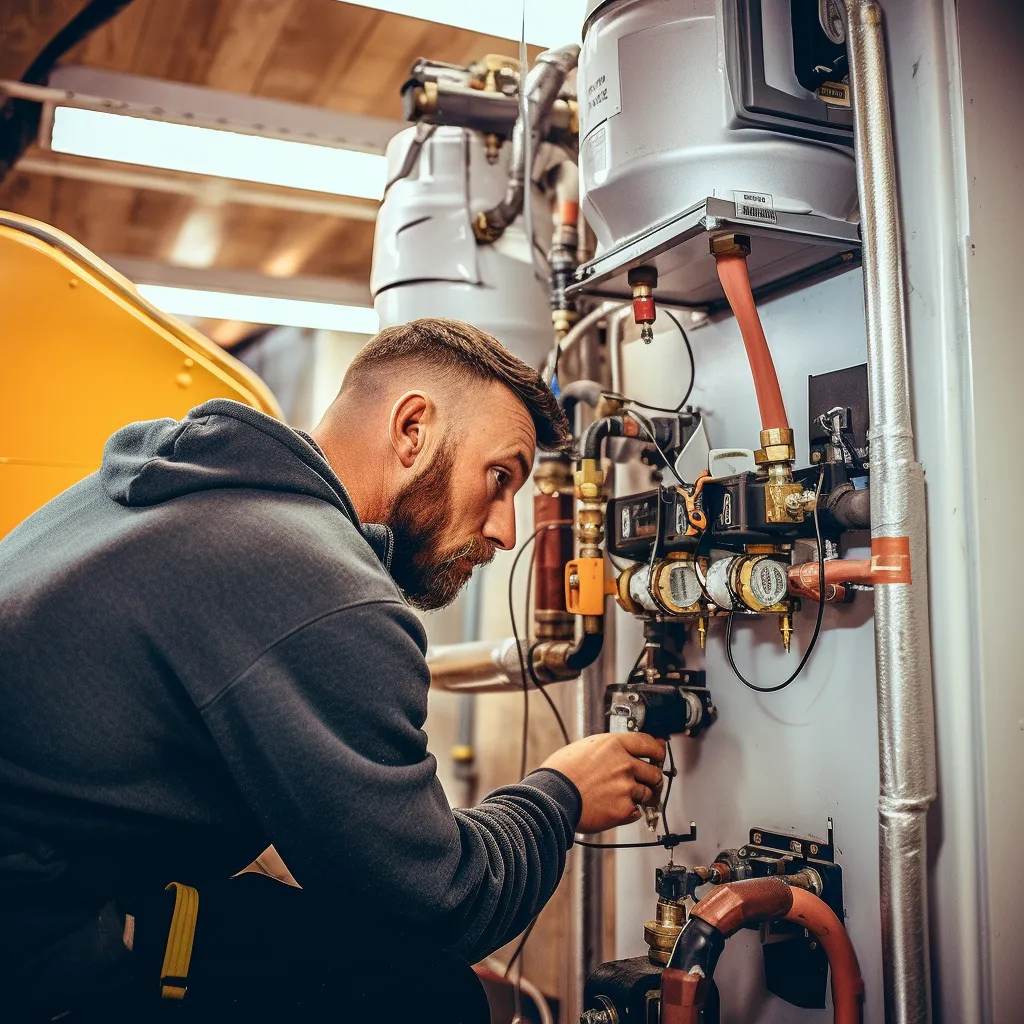Common Raleigh Water Heater Myths: Revealed & Debunked
Are you a homeowner and often find yourself confused by the plethora of water heater myths out there? Don't worry, we're here to help! In this comprehensive guide, we'll debunk common water heater myths, allowing you to separate fact from fiction. Our goal is to provide you with valuable insights and reveal surprising truths about water heaters. Let's dive in!

Myth #1: Durability for eternity
Despite what many people believe, water heaters are not immortal. Although they can endure for quite some time, their lifespan is not indefinite. Several factors, like usage, maintenance, and quality, all play a role in determining how long a water heater will last. On average, most water heaters have a lifespan of approximately 8 to 12 years. It's crucial to understand that delaying the replacement of an old unit can lead to expensive repairs and even water damage to your property. If your water heater is reaching the end of its anticipated lifespan, it is wise to begin exploring replacement options promptly to avoid undesirable consequences.


Myth #2: All water heaters are the same
Water heaters may seem like a one-size-fits-all appliance, but in reality, they come in a wide variety of sizes, shapes, colors, and efficiencies. It's important to understand that not all water heaters are created equal when it comes to meeting your hot water needs. When making a decision about which water heater to purchase, it's crucial to consider factors such as how quickly you want hot water to be delivered and the potential for energy savings. By carefully selecting the right water heater for your specific requirements, you can potentially save a significant amount of money on your energy bills. So, don't be fooled by the misconception that all water heaters are the same. Take the time to gather information and make an informed decision that will not only provide you with reliable hot water throughout the year but also help you save some money in the process.

Myth #3: You get more hot water with a bigger tank
When it comes to choosing a hot water tank, it is crucial to recognize that opting for a larger tank does not necessarily equate to having a greater supply of hot water. Although bigger tanks have the capacity to hold more water, they can also result in wasted energy and inflated utility bills without delivering any extra hot water. It is therefore vital to select a tank that aligns with the specific hot water requirements of your household. By doing so, you can ensure a sufficient supply of hot water while avoiding any unnecessary financial burden.


Myth #4: You can DIY with water heater repair or replacement
When dealing with issues concerning your hot water heater, it is of utmost importance to take immediate action. However, trying to resolve the problem on your own may worsen the situation or even put you at risk of injury. It is strongly advised to enlist the assistance of skilled water heater repair professionals who possess the necessary expertise and understanding to efficiently handle the issue.

Myth #5: Water heaters don't need to be flushed
Regularly flushing your water heater is crucial for preserving its performance and maximizing its lifespan. It is important to debunk the common misconception that neglecting to flush your water heater will not have any consequences. In reality, failing to flush your unit can result in sediment buildup inside the tank, which will lead to reduced efficiency and potential malfunctions. Flushing your water heater on a regular basis is the key to preventing sediment accumulation and ensuring that it operates at peak efficiency.


Myth #6: You can save money by keeping an outdated water heater
Keeping an outdated hot water heater in the hopes of saving money is a common misconception. In reality, it can result in higher energy bills. Older heaters are often less efficient and more prone to expensive repairs, which can add up over time. Instead, it is a smart decision to replace your old hot water heater with a dependable and energy-efficient model.

Myth #7: Bigger water heater tanks are more energy efficient
Contrary to popular belief, selecting a larger water tank does not automatically equate to improved efficiency or energy savings. In reality, an inadequately maintained or poorly insulated larger tank can actually demand more energy to heat the water, resulting in heightened energy expenses. It is crucial to choose a water tank that suits your specific needs in order to promote efficient energy usage. Opting for a larger tank, when the daily requirement for hot water is minimal, can lead to inefficiency and avoidable energy consumption.


Myth # 8: It's a good idea to crank up the water temperature
When it comes to your water heater, it may be tempting to turn up the temperature for instant results. However, it's crucial to approach this decision with caution due to a number of potential drawbacks. One major concern to be mindful of is the increased risk of scalding and severe burns, especially for vulnerable individuals such as children and older adults. It's important to prioritize their safety by keeping the water temperature at a safe level. Another disadvantage of raising the temperature on your water heater is the potential for mineral buildup in your pipes and appliances. This can lead to clogs and blockages, resulting in the need for costly repairs or even replacements. It's best to avoid this unnecessary expense by keeping the water temperature at a moderate level that is suitable for your needs without causing any long-term damage.

Myth #9: There's no problem setting your water heater to the highest temperature
Contrary to popular belief, setting your water heater to the highest temperature is not the quickest way to obtain hot water. In fact, this common misconception not only leads to wasted energy but also puts you at risk of severe burns. To strike a balance between safety and convenience, most households can safely set their water heaters to approximately 120 degrees Fahrenheit. This temperature is sufficient to meet your daily hot water needs while minimizing any potential hazards.


Myth #10: Water heaters waste energy
Water heaters have come a long way in terms of energy efficiency, especially when compared to older models. With the advancement in technology, modern water heaters, such as tankless water heaters, have become more energy-efficient. These tankless water heaters have revolutionized the way we heat water by heating it on-demand, rather than continuously maintaining heat in a tank. One of the key benefits of tankless water heaters is their ability to provide hot water whenever it is needed without the need for storing and constantly reheating water in a tank. This not only saves energy but also eliminates the risk of running out of hot water. In addition to tankless water heaters, other modern features and technologies have also contributed to the energy efficiency of water heaters. Insulation plays a crucial role in preventing heat loss, reducing the amount of energy required to maintain the desired temperature of the water. Moreover, timers can be installed to optimize energy usage by programming the water heater to operate during off-peak hours when the demand for electricity is lower.

Myth #11: Regular water heater maintenance isn't required
It is crucial to regularly maintain water heaters to ensure their optimal performance. Failure to perform routine maintenance can result in reduced efficiency, expensive repairs, or even the need for a new water heater altogether. To keep your water heater operating at its best, it is necessary to periodically inspect the pressure relief valve, flush the tank to eliminate sediment accumulation, and verify that the thermostat is functioning properly.


Myth #12: You can use any type of water heater in the home
Selecting the right water heater for your home is a crucial decision that requires careful consideration. Factors such as the size of your family, the number of fixtures in your home, and your budget should be taken into account. Many people mistakenly assume that any type of water heater will work, but this is not the case. Each type of water heater, including tankless heaters, has its own specific requirements. To ensure that you choose the most suitable and cost-effective option for your home, it is highly recommended that you seek the guidance of a professional. A professional can evaluate your specific needs and help you make an informed decision. Consulting with an expert will give you peace of mind knowing that you have chosen the best water heater for your household. So take the time to research and reach out to a professional to ensure that you make the right choice for your home's water heating needs.

Myth #13: Hard water damages your water heater
Although water heater manufacturers do design their products to withstand the damaging effects of hard water, it is important to acknowledge that hard water can still have adverse effects on your water heater in the long run. The minerals found in hard water, specifically calcium and magnesium, can accumulate inside the water heater tank and on heating elements, leading to reduced efficiency and the potential for damage. In order to prevent excessive mineral buildup, regular maintenance is crucial and should include processes such as flushing the tank and descaling. By taking these measures, you can ensure the optimal performance of your water heater and extend its lifespan.


Myth #14: Tankless water heaters are more costly
While tankless water heaters have a higher initial cost than traditional storage tank water heaters, the long-term benefits they offer make them a valuable investment. Unlike conventional heaters that constantly heat and store water, tankless heaters only heat water when it is needed. This efficient approach minimizes energy waste and leads to significant savings on monthly utility bills.
Contact Us
GET IN FULL TOUCH
PHONE: (984) 223-8754
EMAIL:
david@waterheatersinraleigh.com
Almighty Plumbing
Raleigh, NC 27602
